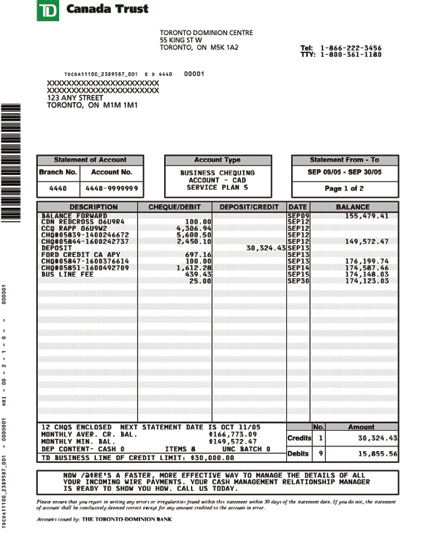12 Hospitality Management Vacancies That Offer Career Growth

The hospitality industry is a vast and dynamic field that encompasses a wide range of services including lodging, food and beverage, transportation, and tourism. It is an industry that is constantly evolving, with new trends, technologies, and consumer preferences emerging all the time. For individuals looking to build a career in this exciting and rewarding field, there are numerous hospitality management vacancies that offer significant opportunities for career growth. Here, we will explore 12 such vacancies, each with its unique challenges, opportunities, and growth prospects.
1. Hotel General Manager
At the helm of any hotel operation is the General Manager, responsible for overseeing all aspects of the hotel’s operations, from front desk services to housekeeping, and from food and beverage to finance. This role is pivotal in ensuring the hotel runs smoothly, meets its financial targets, and maintains high standards of customer satisfaction. Career growth in this role can lead to regional or global management positions within hotel chains.
2. Restaurant Manager
Restaurant managers are tasked with the day-to-day operations of restaurants, cafes, or other dining establishments. This includes staff management, inventory control, customer service, and ensuring that health and safety standards are met. With experience, restaurant managers can move into senior roles within hospitality groups or open their own establishments, making it a role with considerable potential for entrepreneurial career growth.
3. Event Coordinator
Event coordinators are responsible for planning, organizing, and executing events such as weddings, conferences, and parties. This role requires meticulous planning, attention to detail, and excellent communication skills. Successful event coordinators can progress to senior event planning roles or start their own event planning businesses, capitalizing on their creativity and organizational skills.
4. Tourism Marketing Specialist
Tourism marketing specialists develop and implement marketing strategies to attract visitors to destinations, hotels, or resorts. This role involves a deep understanding of consumer behavior, market trends, and the ability to craft compelling marketing campaigns. Career advancement in this field can lead to senior marketing roles or director positions within tourism boards or international hospitality brands.
5. Hospitality IT Manager
With technology playing an increasingly vital role in the hospitality industry, IT managers are crucial for managing and implementing hospitality technology solutions. This includes property management systems, customer relationship management tools, and digital marketing platforms. As technology continues to evolve, the role of the hospitality IT manager offers significant growth opportunities, including moving into executive IT roles or consulting.
6. Food and Beverage Director
The Food and Beverage Director oversees all culinary aspects of a hotel or resort, including menus, kitchen operations, and dining services. This role demands a passion for cuisine, strong leadership skills, and the ability to innovate and adapt to culinary trends. Career progression can lead to executive chef positions or Food and Beverage director roles in prestigious establishments, offering a path for culinary enthusiasts to combine their passion with business acumen.
7. Housekeeping Manager
Housekeeping managers are responsible for maintaining the cleanliness and organization of hotels, ensuring high standards of guest satisfaction. This role involves staff supervision, inventory management, and quality control. Experienced housekeeping managers can move into hotel operations or facilities management roles, where their attention to detail and management skills are highly valued.
8. Concierge
Concierges provide guests with personalized services and recommendations, acting as the face of the hotel and often forming lasting impressions. This role requires excellent communication skills, extensive local knowledge, and the ability to multitask. Career growth for concierges can lead to senior front-of-house roles or even hotel management positions, as their understanding of guest needs and preferences is invaluable.
9. Spa and Wellness Manager
Spa and wellness managers oversee the operations of spa facilities within hotels or resorts, including treatments, services, and staff management. This role combines business acumen with an understanding of wellness and customer service. With the growing demand for wellness services, career advancement in this area can lead to director roles in luxury spas or the launching of independent wellness ventures.
10. Revenue Manager
Revenue managers in the hospitality industry focus on maximizing revenue through strategic pricing, inventory management, and market analysis. This role requires strong analytical skills, an understanding of market trends, and the ability to make data-driven decisions. Career progression can lead to senior revenue management roles or even director of revenue positions in global hotel chains, where strategic revenue growth is critical.
11. Sustainability Manager
Sustainability managers are responsible for developing and implementing environmental and social sustainability practices within hospitality organizations. This includes reducing carbon footprints, implementing recycling programs, and ensuring compliance with sustainability standards. As sustainability becomes increasingly important, this role offers significant growth opportunities, including leading sustainability initiatives in major hospitality corporations or consulting on sustainable practices.
12. Digital Marketing Specialist
Digital marketing specialists in hospitality are tasked with creating and executing online marketing strategies to attract guests and enhance the brand’s digital presence. This involves social media management, content creation, SEO, and digital advertising. With the hospitality industry becoming increasingly digital, experienced digital marketing specialists can move into senior marketing roles or lead digital transformation projects within hospitality companies.
Each of these hospitality management vacancies offers a unique path for career growth, whether through specializing in a particular area of hospitality, moving into senior management positions, or leveraging skills and experience to start a venture. The key to success in any of these roles is a combination of industry knowledge, business acumen, creativity, and a relentless commitment to delivering exceptional customer experiences. As the hospitality industry continues to evolve, embracing technology, sustainability, and changing consumer preferences, the opportunities for career advancement and innovation will only continue to grow.
What skills are most valuable for career advancement in hospitality management?
+Skills such as leadership, communication, problem-solving, and adaptability are highly valued. Additionally, expertise in areas like marketing, finance, and technology can provide a competitive edge.
How important is experience in securing hospitality management roles?
+Experience is crucial as it demonstrates practical knowledge and skills. Many hospitality management roles require a significant amount of experience, especially in senior positions. However, internships and entry-level positions can provide valuable stepping stones.
What role does education play in hospitality management careers?
+Earning a degree in hospitality management or a related field can provide a solid foundation for a career in the industry. It offers theoretical knowledge, practical skills, and often includes internships or work experience, making graduates more competitive in the job market.
In conclusion, the hospitality industry offers a diverse range of career paths, each with its unique opportunities and challenges. By understanding the various roles available and the skills required to succeed in them, individuals can make informed decisions about their career progression. Whether through formal education, gaining practical experience, or developing specialized skills, there are numerous ways to achieve career growth in hospitality management. As the industry continues to evolve, the demand for talented, adaptable, and innovative professionals will only increase, making now an exciting time to embark on a hospitality management career.
